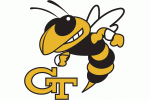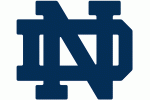Familiar feelings of a basketball game include the roar of the audience, the squeak of shoes on the floor, and the tension in the air as the clock goes down. But replace the basketball with poker chips, the court with a green felt table, and the opponent with another poker player and you will see that the fundamental ideas of rivalry are very similar. Though seeming far apart, the abilities developed on the basketball floor may remarkably help one succeed at the poker table. A poker player needs the same mental agility to negotiate the often shifting terrain of the game, just as a point guard needs fast thinking and adaptation. Examining how the discipline, strategy, and mental fortitude acquired in basketball could open the path to success in poker, this essay explores the intriguing links between these two dissimilar realms.

The Mental Game: Discipline and Focus
Basketball requires relentless discipline. Players do exercises, hone their abilities, and learn to execute plays with accuracy for many endless hours. In poker too, this commitment to excellence is very vital. Good poker players know the value of bankroll control, game theory studies, and regular gaming analysis of their own. A poker player has to examine their hands and methods to hone their approach, just as a basketball player studies game tape to find flaws and enhance their performance. Both good athletes and poker players are distinguished by this commitment to ongoing development. They are aware that knowledgeable opponents may take advantage of even little flaws in their game.
Moreover, in both fields, attention is very important. In basketball, a player has to keep focus on the distractions of the audience and game pressure. In poker, too, a player must pay perfect attention to read opponents, figure odds, and make the best judgments. Whether they're a defensive player or an enticing side bet, distractions could cause expensive blunders. For both players of poker and sportsmen, a key quality is the capacity to ignore the noise and be present in the moment. Many online sites provide chances for individuals just starting to develop and refine these abilities. Some even include incentives like a free chip no deposit Canada to draw in fresh players. This gives a great learning platform and lets players enjoy the excitement of the game without major financial risk. Often spanning several hours, the mental endurance needed to keep concentration for a whole basketball game is exactly relevant to the lengthy grind of a poker tournament.
Strategic Thinking: Reading the Game
Strategic thinking is among the areas where basketball and poker most significantly overlap. In basketball, coaches create complex game plans, predicting opponent plays and creating tactics to take advantage of flaws. Then, on the court, players must carry out these strategies while adjusting to the fast pace of the game. Another strategic game is poker. Gamers have to:
-
Examine their opponents's betting behavior;
-
Evaluate their hand strength;
-
Decide deliberately depending on insufficient knowledge;
-
Modify their approach to fit evolving conditions;
-
Control under duress.
In both basketball and poker, a key attribute is your capacity to read the game, predict your opponent's moves, and change your approach. Both games are so engaging in part because of their strategic complexity. A poker player has to be able to adjust their strategy depending on the changing table dynamics, much as a basketball coach may call an audible play depending on the defensive arrangement.
Adaptability: The Key to Success
In basketball, a player cannot depend on one motion consistently. Defenses change, hence players have to be able to change their strategy. The same holds in poker. A player that only plays tight, for instance, would become an easy target for exploitation. Good poker players are flexible and able to modify their approach according to the cards they are dealt, the opponent they face, and the circumstances. At the poker table, this flexibility, developed via years of basketball play and adaptation to various defensive schemes, can be very valuable. A basketball player who can go from a jump shot to a drive to the basket shows the same sort of adaptability required to thrive in poker.
Risk Assessment: Calculating the Odds
Basketball players evaluate danger all the time. Should they aim for a challenging shot? Should they drive to the hoop and run the danger of a foul? These split-second judgments call for a rapid assessment of possible results and related hazards.
In poker, too, this skill to evaluate risk is vital. Players have to always:
-
Compare the possibility of losing their chips versus the possible prize from winning a pot.
-
Calculate pot odds to see if a call is lucrative.
-
Know implied chances to expect future success.
-
Make choices based on insufficient knowledge.
-
Maximize long-term success by balancing prudence with aggressiveness.
Constant risk-reward calculations on the basketball floor help many develop these abilities. A basketball player who is aware of their own turnover risk will be more qualified to grasp the danger of a bluff in poker.
Mental Fortitude: Handling the Pressure
In the high-stress context of a poker game, the mental fortitude gained from competitive sports like basketball may be very beneficial. On the court, one develops qualities that will help them at the felt: the capacity to manage defeats, recover from mistakes, and remain calm under duress. Whether it's blanking an opponent out of a pot or nailing a game-winning shot, the capacity to execute under duress is evidence of the mental toughness developed via physical competition. In poker as much as basketball, success depends on this mental toughness. A poker player has to learn to move on after a poor beat, just as a basketball player learns to reject a missed free shot. A feature of great rivals in both fields is their ability to control emotions and remain long-game-oriented.
Teamwork and Reading People: Understanding Opponents
Although poker is usually seen as a personal activity, the abilities acquired in team sports like basketball might be really important. Basketball players pick up reading their teammates' body language, predicting their motions, and knowing their strengths and shortcomings. These abilities immediately apply to the poker table, where success depends on knowing the opponent's tells, betting patterns, and next move expectations. A basketball player who can see a teammate's pass is probably more adept at spotting an opponent's bluff. In the realm of poker, this capacity to grasp human behavior, developed over years of team sports, can be a big advantage. Though the ultimate aim is individual success, the friendship and shared experiences of team sports might naturally equip players for the social dynamics of a poker room. For individuals who like investigating the strategic aspect of poker, materials might provide insightful analysis. These materials often explore the psychological and mathematical sides of the game, therefore guiding players toward improved strategic thinking and risk assessment ability.
There is more link between basketball and poker than first seems. Both call on being able to read opponents, keep cool under duress, and adjust to always-shifting circumstances. Including basketball court techniques will provide Canadian gamers trying to improve their poker abilities a winning advantage. Developing these common abilities can help you succeed more in both games, whether you're playing for pleasure or in high-stakes contests.



















